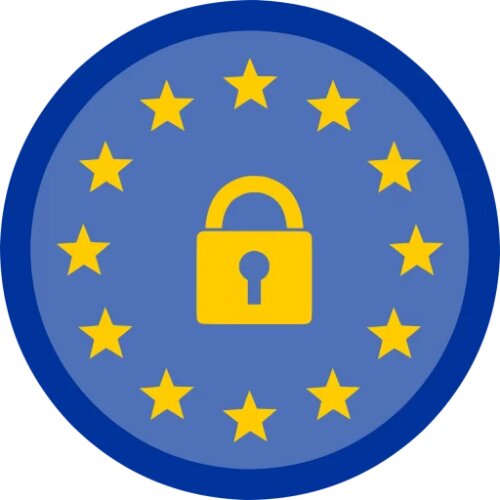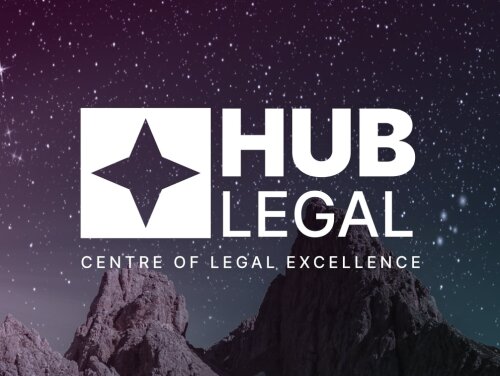Best Energy Regulatory Law Lawyers in Vilnius
Share your needs with us, get contacted by law firms.
Free. Takes 2 min.
List of the best lawyers in Vilnius, Republic of Lithuania
About Energy Regulatory Law in Vilnius, Republic of Lithuania
Energy Regulatory Law in Vilnius, as throughout the Republic of Lithuania, is a specialized field that governs the production, transmission, distribution, and supply of energy, including electricity, gas, and renewable energy. The legal framework is designed to ensure safe, reliable, and sustainable energy services in compliance with both European Union directives and Lithuania's national interests. The main regulatory authority is the National Energy Regulatory Council which oversees licensing, tariff setting, market operation, and consumer rights within the energy sector. The law covers a wide range of activities, from energy market liberalization and infrastructure development to environmental protection and consumer protection.
Why You May Need a Lawyer
There are numerous situations where a lawyer specializing in Energy Regulatory Law may be invaluable. Individuals and businesses in Vilnius may require legal support if they are:
- Developing new energy projects such as wind farms, solar power plants, or bioenergy facilities
- Negotiating power purchase or supply agreements
- Applying for licenses or permits from regulatory authorities
- Facing disputes with energy suppliers, distributors, or regulatory bodies
- Seeking advice on compliance with energy efficiency and environmental standards
- Addressing tariff and rate-setting issues
- Participating in mergers, acquisitions, or restructuring within the energy sector
- Responding to investigations or enforcement actions taken by energy regulators
A lawyer experienced in this field can help clients navigate complex legal requirements, protect their interests, and avoid costly mistakes.
Local Laws Overview
Energy regulation in Vilnius operates mainly under the Law on Energy of the Republic of Lithuania and sector-specific laws (such as the Law on Electricity and the Law on Natural Gas). Key aspects relevant to Energy Regulatory Law include:
- Licensing: Entities must obtain licenses to generate, transmit, distribute, or supply energy.
- Tariff Regulation: The National Energy Regulatory Council sets tariffs and approves methodologies for calculating prices charged to consumers.
- Third Party Access: Market participants have the right to access infrastructure networks (like electricity grids) under regulated conditions.
- Consumer Protection: Laws protect end-users against unfair practices, ensure the quality of service, and offer mechanisms for dispute resolution.
- Renewable Energy Support: Lithuania incentivizes investment in renewable sources through feed-in tariffs, tenders, and grid priority rules.
- Compliance with EU Law: Lithuania aligns its energy laws with relevant EU directives on market liberalization, energy security, and carbon reduction.
- Environmental Standards: Operators must comply with environmental regulations, including requirements for environmental impact assessments and emission limits.
Frequently Asked Questions
What is the main regulatory body for energy in Lithuania?
The primary regulator is the National Energy Regulatory Council, which is responsible for licensing, market oversight, tariff setting, and consumer protection in the energy sector.
Do I need a license to produce renewable energy for self-use?
Small-scale energy producers generating below prescribed thresholds for self-consumption typically do not need a full license, but may need to notify the authorities or register their installations.
How are energy tariffs determined in Vilnius?
Tariffs are set by the National Energy Regulatory Council based on transparent methodologies that consider operating costs, investment needs, and a reasonable profit margin.
What legal recourse do consumers have against unfair energy practices?
Consumers can file complaints with the National Energy Regulatory Council and have access to dispute resolution procedures and consumer protection agencies if they experience unfair billing or service issues.
How does Lithuania encourage investment in renewable energy?
Lithuania offers incentives such as guaranteed purchase prices, national tenders for new capacity, priority grid access, and support through EU and national funding programs.
Are foreign investors allowed in the Lithuanian energy market?
Yes, foreign investors can participate in the Lithuanian energy sector, subject to compliance with licensing, regulatory approvals, and national security considerations.
What are the environmental obligations for energy projects?
All major energy projects must comply with environmental regulations, including conducting environmental impact assessments and adhering to emission control standards.
Can individual consumers choose their electricity supplier?
Yes, Lithuania has a liberalized electricity market that allows consumers to choose their supplier from registered market participants.
What happens if I violate energy regulations?
Violations can result in administrative sanctions, fines, suspension or revocation of licenses, and, in serious cases, criminal liability.
Who should I contact for help with energy law issues?
You can start with the National Energy Regulatory Council, a qualified energy law attorney, or relevant industry associations for guidance on your situation.
Additional Resources
Individuals and businesses seeking further information or support on Energy Regulatory Law in Vilnius may consider reaching out to the following organizations:
- The National Energy Regulatory Council - The main regulator for licensing, dispute resolution, and tariffs
- The Ministry of Energy of the Republic of Lithuania - Responsible for national energy policy and legislation
- Lithuanian Energy Institute - Provides research, publications, and expert insights on energy issues
- Lithuanian Bar Association - Helps find qualified legal specialists in energy law
- Consumer Rights Protection Authority - Assists with consumer complaints in the energy sector
- Renewable Energy Confederation - Supports renewable energy investors and developers
Next Steps
If you require legal advice regarding Energy Regulatory Law in Vilnius, start by defining the nature of your issue, whether it involves licensing, a dispute, compliance, or investment. Gather relevant documentation and consider making initial inquiries with the National Energy Regulatory Council or consulting consumer protection bodies for general information. For in-depth legal analysis or representation, contact an experienced energy law attorney in Vilnius. When selecting a legal professional, ensure they have expertise in the specific area of energy law relevant to your situation and understand both Lithuanian regulations and broader EU legal requirements. Proper legal guidance can help you avoid costly mistakes, resolve disputes efficiently, and secure your interests in this rapidly evolving sector.
Lawzana helps you find the best lawyers and law firms in Vilnius through a curated and pre-screened list of qualified legal professionals. Our platform offers rankings and detailed profiles of attorneys and law firms, allowing you to compare based on practice areas, including Energy Regulatory Law, experience, and client feedback.
Each profile includes a description of the firm's areas of practice, client reviews, team members and partners, year of establishment, spoken languages, office locations, contact information, social media presence, and any published articles or resources. Most firms on our platform speak English and are experienced in both local and international legal matters.
Get a quote from top-rated law firms in Vilnius, Republic of Lithuania — quickly, securely, and without unnecessary hassle.
Disclaimer:
The information provided on this page is for general informational purposes only and does not constitute legal advice. While we strive to ensure the accuracy and relevance of the content, legal information may change over time, and interpretations of the law can vary. You should always consult with a qualified legal professional for advice specific to your situation.
We disclaim all liability for actions taken or not taken based on the content of this page. If you believe any information is incorrect or outdated, please contact us, and we will review and update it where appropriate.












